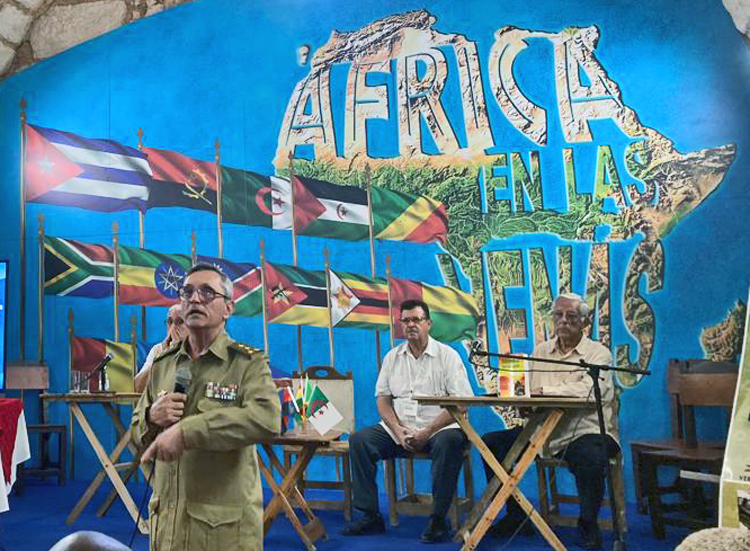HAVANA — “We’re confronting a difficult world situation and the intensification of the U.S. economic blockade against Cuba — but here we are, opening the 33rd Havana International Book Fair!” said Juan Rodríguez Cabrera, president of the Cuban Book Institute. He was speaking Feb. 13 at the inaugural event of the book fair, this country’s biggest annual cultural event. After 10 days in Havana, a sampling of the fair will travel to every province across the island.
The determination to hold the book festival this year despite enormous economic challenges, Rodríguez said, underscores “the value that is given to books and reading” by the Cuban government — and by millions of working people here.
Despite shortages of fuel and other resources that have sharply curtailed bus transportation in Havana — one of the many consequences of Washington’s brutal economic war against the Cuban Revolution — thousands of people have made their way to the book fair, which is being held at the San Carlos de la Cabaña, a colonial fortress overlooking Havana Bay.
To make the fair more accessible to Havana’s population, book presentations, donations of books, poetry readings and musical performances are being held at cultural institutions around the city, as well as in community centers, schools, job sites, hospitals and prisons.
One of the themes of this year’s book fair is the 130th anniversary of the death in combat of Cuba’s national hero, José Martí, the central leader of Cuba’s war for independence from Spanish colonial rule in the late 19th century. A number of presentations at the book fair feature works by Martí.
Rodríguez reported that, despite acute shortages of paper and ink, a project called the Popular Library has been launched. It has already published more than 60 classics of Cuban and world literature, especially children’s books, in both printed and digital formats.
This effort draws on the example of earlier initiatives during the Cuban Revolution. The first Popular Library was launched just months after the 1959 revolutionary victory, and it received an enormous boost from the 1961 mobilization of hundreds of thousands of young Cubans in a campaign that taught nearly a million working people in the countryside and in towns to read and write. It turned Cuba into the first “Territory Free of Illiteracy” in the Americas.
How the revolutionary government led by Fidel Castro took steps from the beginning to encourage reading and book publishing is the subject of one of the titles presented at the fair, Fidel y la industria editorial cubana (Fidel and the Cuban publishing industry) by Francisca López Civeira and Fabio Enrique Fernández.
For most working people in Cuba, “the world of books was almost nonexistent in the 1950s. That was transformed by the revolution,” which massively expanded access to culture and education, Fernández said at the book launch.
The country of honor at this year’s book fair is South Africa. At the inaugural event, attended by a visiting delegation from South Africa, Rodríguez highlighted the close relations between Fidel Castro and Nelson Mandela. Mandela was the central leader of the struggle for a nonracial, democratic South Africa that overturned the segregationist regime there in the 1990s. He often thanked revolutionary Cuba for its decisive contribution to the fight for freedom in South Africa and across the continent.
On the first full day of the Havana book fair Feb. 14, a special program called “Africa in our veins” was sponsored by Verde Olivo, the publishing house of Cuba’s Revolutionary Armed Forces (FAR). The presentation highlighted the internationalist missions by Cuban volunteer combatants in Africa over more than six decades. They aided freedom struggles from Algeria to the Congo, Guinea-Bissau, Ethiopia and Angola. Presented by Col. José Manuel Cereijo, head of the FAR’s Center for Military Studies, it was dedicated to some 4,000 Cuban combatants who fell during these missions.


